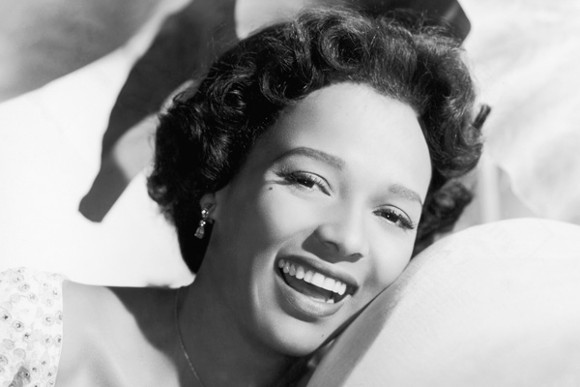
Dorothy Dandridge was a popular African American celebrity, known for her remarkable acting in Hollywood. Her other skills besides theater acting included dancing and singing. For her outstanding work in the 1954 film Carmen Jones, Dandridge was nominated for the Academy Awards, rendering her the first black actress to be ever considered for an Oscar.
Born on November 9, 1922, Dorothy Jean Dantodridge grew up in Cleveland, Ohio. Her mother was a struggling entertainer Ruby Butler and father, a minister and cabinetmaker, Cyril Dandridge, but they separated even before Dorothy was born. She and her sister rarely attended the school while they were touring with their mother across Southern America. As the Great Depression set in, the work became scarce for Dandridges. Thus, Dorothy’s mother headed to Hollywood, California, where she eventually found a steady work, while the children’s formed a band of sorts called, The Dandridge Sisters. Dorothy and her sister Vivian’s band performed a number of gigs at several nightclubs for a few years.
In 1935, Dandridge made her first screen appearance in a short comedy Teacher’s Beau. Then the sisters appeared in The Big Broadcast (1936), It Can’t Last Forever and A Day at the Races (1937). Despite the fact that these brief appearances were considered trivial, The Dandridge Sisters managed to earn recognition for their regular performances at nightclubs across America. Eventually, Dandridge was able to grab a role for which she was credited in the film, Four Shall Die, which came out in 1940. Henceforth, she continued to receive minor roles in several films, such as Sundown and Lady from Louisiana. Sun Valley Serenade, a musical film presented her as a “Specialty Number” in the movie.
Moreover, Dandridge appeared in numerous ‘soundies’, which is a film clip displayed on juke boxes. During 1940s, she performed not only in films but stage as well. Some of her notable works included her role in Tarzan’s Peril (1951) as an African Queen. With the release of the film, a controversy began to surface as Hollywood censorship bureau objected to the display of ‘blunt sexulaity’ on screen. Since America was still racial at its core during 1950s, Dandridge was singled out for wearing a provocative outfit. As the controversy continued to grow, it also helped her gain a fair amount of publicity. The Look magazine featured Dandridge on the cover of their magazine following the wardrobe controversy. She signed another film, The Harlem Globetrotters, the same year, but it failed to make a difference for her acting career. The following year her film Bright Road, came out opposite Harry Belafonte, which featured her as a teacher.
Dandridge continued to make appearances in television shows until she was landed a role in all-black musical film, Carmen Jones, based on Georges Bizet’s 1874 opera. At first she was considered for minor role in the film given her sophisticated looks. However, when Dandridge reinvented her look with the aid of a make-up artist, she was immediately casted for central character along with Harry Belafonte, Diahann Carroll, Pearl Bailey and Brock Peters. Despite her musical background, operatic vocalist Marilyn Horne was made to dub her voice. The musical was a smashing hit at the box office and gained Dandridge the kind of popularity that she never had before. Her noteworthy performance in film earned her a best actress nomination in the Academy Awards along with Grace Kelly, Audrey Hepburn and Judy Garland. Dorothy Dandridge passed away at the age of 42, which some argue due to anti-depressant overdose while others believe to be due to embolism.
